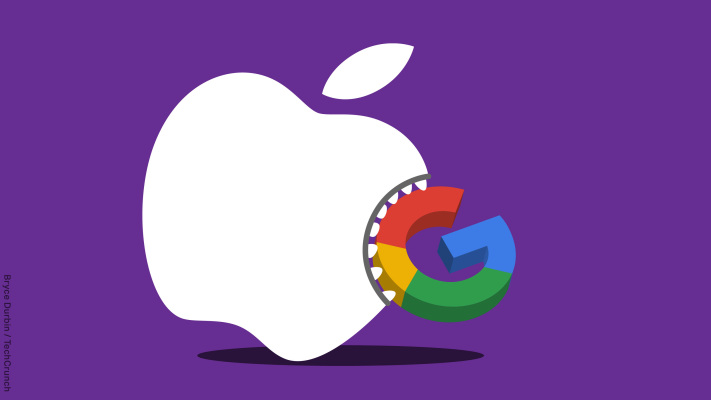List Of Cybersecurity Measures Necessary For Every Organization
Most people know Zynga as a giant in the Facebook gaming sector. They created several popular Facebook games such as FarmVille, Words with Friends, and Mafia Wars. But in 2019, information of 218 Million users of the app was compromised in a cyber attack. Other organizations have also fallen prey to cyber-attacks. Hackers have also targeted companies like Adobe, eBay, and LinkedIn. They are not the only ones to suffer. All types of organizations are at risk of hacking and data breaches. The size of the operations does not matter as hackers attack all organizations indiscriminately.
Every organization must ensure that they are safe from such attacks. Their user, employees, and customers depend on them to safeguard their data and prevent any misuse of information. Hence organizations need to invest in cybersecurity measures to protect themselves from getting compromised. There are some steps that every organization must follow to minimize the chance of cyberattacks and data breaches.
These steps are mentioned below;
- Bring In The Professionals.
In a rapidly evolving digital landscape, the importance of cybersecurity cannot be overstated. Engaging cyber professionals, such as those from GuidePoint Security, ensures organizations are equipped with the latest strategies and technologies to safeguard against cyber threats. These experts respond to incidents and proactively work to prevent them, integrating a comprehensive security approach that spans all aspects of an organization. Their diverse expertise and qualifications in various fields make them invaluable in developing robust, holistic security systems that protect against a wide range of cyber-attacks.
- Training The Staff
One of the biggest reasons for cyber-attacks is the attitude of the employees. Prevention is better than cure, so training the staff is essential. Regular training on cybersecurity is necessary to keep employees up to date and vigilant. Since this field is ever-evolving, training should be held every six months to inform about the latest threats. Most organizations that are targeted by hackers follow outdated cybersecurity policies.
It’s as essential to prevent attacks as it is to damage control after an attack. Employees should be taught how to react after there has been a breach in cybersecurity. So, it’s essential to have a clear cybersecurity policy that is written down. Several free cyber policy templates can be used as a foundation. An employee signature should be a requirement to make employees guilty in case of any breach.
- Good Password Hygiene
Good password hygiene is vital to avoid viruses. It means that passwords should be difficult to guess. Writing down passwords is a big no-no. Saving your name as your password is another common mistake. Employees may be encouraged to use a combination of numbers and letters to create passwords. Both uppercase and lowercase letters should be there. Some people rely on online password generators for strong passwords.
Continually changing passwords is also a good practice. People who use the same passwords for different accounts put all the other devices at risk of cyber-attacks. Each account should have a sperate password. Two-factor authorization for signing in is also a recommended practice since it strengthens cybersecurity. Companies that deal with extra-sensitive information and data might even consider biometric sign-ins for added security.
- Always Be Vigilant
Being on your guard helps avoid cyber-attacks. According to estimation, hackers attack 2,244 times a day. Organizations need to be cautious and vary to avoid becoming a victim. Regular audits of who has passwords for which accounts may help with this. Even regular software updates are essential because most updates include fixes for cybersecurity. Information should also be backed up so that organizations can use the backup to keep working efficiently in case of a breach. Backups should be made of all data, be it on the cloud or the devices. For another layer of security, the backup can be stored at a separate location.
Regularly monitoring systems will help catch breaches early on to minimize the damage.
- Fight It With Fire(Walls)
Firewalls limits access to your system. They can be quite beneficial to prevent unauthorized access from outside and inside the system. Without a firewall in place, systems are susceptible to attacks from the internet. Not any firewall would do, however. Traditional firewalls were highly sensitive to attacks from web applications. Next level firewalls are not. They can monitor websites as well as applications. They can watch, alert, and block applications if they are acting suspiciously.
- Anti-Virus, Anti-Malware, VPNs
Anti-virus is critical in fighting cyber-attacks. They are the last stand before a system falls prey to attacks. They scan and remove any harmful files from your computer. External devices such as USBs can also be monitored by anti-virus before their usage. Although it is best to ignore suspicious emails, employees might disagree. It makes them vulnerable to phishing attacks. So, organizations should install Anti-Malware, which protects from phishing attacks. VPNs are incredibly essential to secure internet usage. VPNs hide personal data through encryption. VPNs also secure the IP addresses of the users.
- Run Tests
The only way to check how prepared you are for cyber-attacks is by running tests. Companies should run regular tests to assess whether their system can withstand different types of attacks. Vulnerability and penetrative tests check if any vulnerabilities may allow unauthorized access to servers. Most hackers use applications to gain access to servers. Organizations should regularly test their applications for any vulnerabilities that can be misused by criminals. Since employee attitude is usually the weakest link in cybersecurity, regular tests should are vital to test employees’ vigilance.
Organizations need to invest in cybersecurity measures to survive nowadays. All sectors may rely on private data that is at risk of cyberattacks. As mentioned, most attacks are indiscriminate. Any organization can be a victim. As cybersecurity is a priority, a right, long-lasting approach to the issue will be better in the long term. A risk-based approach helps prevent cybersecurity attacks by identifying problem areas. Training, good password hygiene, and constant vigilance will help organizations avoid any unpleasantness. It is an excellent investment to have a dedicated team to handle such matters since cyber threats might only increase in the future. Every person in the organization must play a role in making the system secure.








